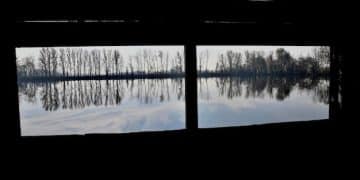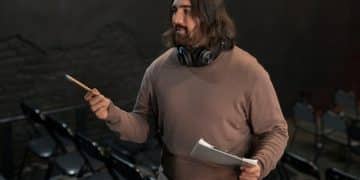The Unsung Composers of Cult Cinema: Rediscovering Forgotten Soundtracks
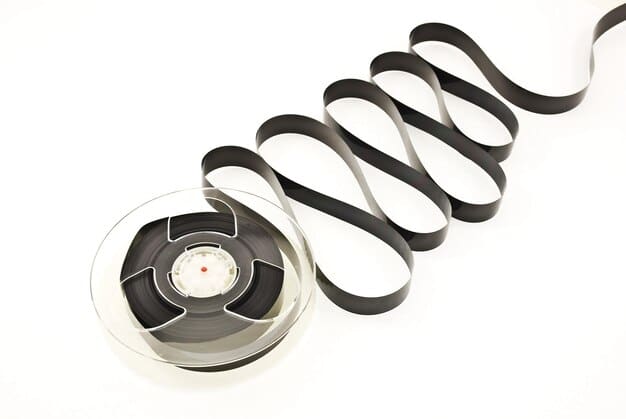
The Unsung Composers of Cult Cinema often remain in the shadows, yet their innovative and evocative soundtracks are integral to the immersive experience of ‘Forgotten Classics’, shaping the emotional landscape and contributing significantly to the films’ enduring appeal.
Dive into the world of The Unsung Composers of Cult Cinema: Unearthing the Soundtracks That Defined ‘Forgotten Classics’, where we celebrate the often-overlooked musical geniuses behind the movies we cherish. Their scores have the power to transport us, deepen our emotional connection, and elevate a film from mere entertainment to a lasting art form.
The Invisible Architects of Sound
Many moviegoers readily recall iconic scenes or memorable lines from their favorite films, but the music that underscored those moments is often relegated to the background. These are the works of the unsung composers of cult cinema, talented individuals who crafted the sonic landscapes of movies that have become cherished classics. They deserve to be brought into the spotlight.
These composers frequently worked with smaller budgets and outside the studio system, allowing for greater creative freedom. This often resulted in innovative and unconventional scores that perfectly complemented the unique narratives of cult films.
The Power of Atmosphere
Cult films often rely on creating intense atmospheres, and the music plays a vital role in achieving this. Composers use a variety of techniques to establish the desired mood, from suspenseful orchestral arrangements to experimental electronic soundscapes.
- Use of dissonant chords and unusual instrumentation to evoke a sense of unease.
- Employing silence as a powerful tool to heighten tension.
- Blending diegetic and non-diegetic sound to blur the lines between reality and the film’s world.
These techniques, when executed effectively, can deeply immerse the viewer in the film’s atmosphere, creating a truly unforgettable experience.
Through these elements, they add layers of depth and emotion to each scene, enhancing the overall cinematic experience.
Synthesizers and the Rise of Cult Soundtracks
The advent of synthesizers in the late 20th century dramatically altered the landscape of film scoring. Affordable and versatile, synthesizers opened up new sonic possibilities for composers working on low-budget cult films. They could now create entire orchestral scores with a single instrument, leading to a surge in innovative and experimental soundtracks.
Furthermore, the rise of independent cinema gave composers more creative control, leading to more diverse musical styles and approaches.
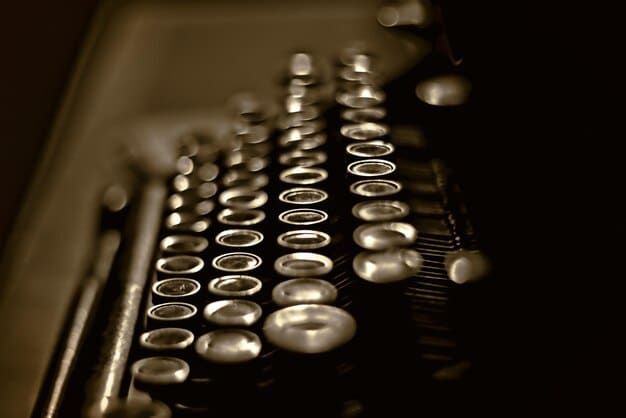
The DIY Ethos
Many cult film composers embraced a DIY ethos, recording their scores in home studios and experimenting with unconventional techniques. This hands-on approach allowed them to maintain complete creative control and develop a unique sonic signature.
This do-it-yourself mentality resonates with the spirit of cult films, which often defy conventions and embrace originality.
- Using unconventional instruments and found sounds.
- Experimenting with tape manipulation and effects processing.
- Collaborating with independent filmmakers to achieve a shared artistic vision.
This approach often resulted in scores that are both raw and innovative, perfectly capturing the spirit of the films they accompany.
Thus, the synthesisers’ relevance in cult film soundtracks is undeniable.
Exploring the Soundscapes of John Carpenter
No discussion of unsung cult film composers would be complete without mentioning John Carpenter. While primarily known as a director, Carpenter is also a talented composer who scored many of his own films, creating some of the most iconic and influential soundtracks in the genre.
His minimalist, synthesizer-driven scores are instantly recognizable and have had a lasting impact on horror and science fiction filmmaking.
Simplicity and Suspense
Carpenter’s scores are characterized by their simplicity and effectiveness. He often relies on repetitive motifs and pulsing electronic rhythms to create a sense of unease and suspense.
His approach to music is similar to his approach to filmmaking: efficient, economical, and highly effective.
- Use of simple melodies that are both catchy and unsettling.
- Creating tension through gradual changes in tempo and volume.
- Employing silence to maximize the impact of musical cues.
These minimalist techniques allow the music to work on a subconscious level, amplifying the film’s atmosphere without overpowering the visuals.
Therefore, John Carpenter’s work stands as a testament to the power of simplicity in film scoring.
Ennio Morricone’s Influence on Cult Cinema
While primarily known for his work on Spaghetti Westerns, Ennio Morricone’s influence extends far beyond that genre and into the realm of cult cinema. His innovative and experimental scores have inspired countless composers and filmmakers.
Morricone’s willingness to break with convention and incorporate unusual instrumentation into his scores made him a hero to independent filmmakers seeking a unique sonic identity.
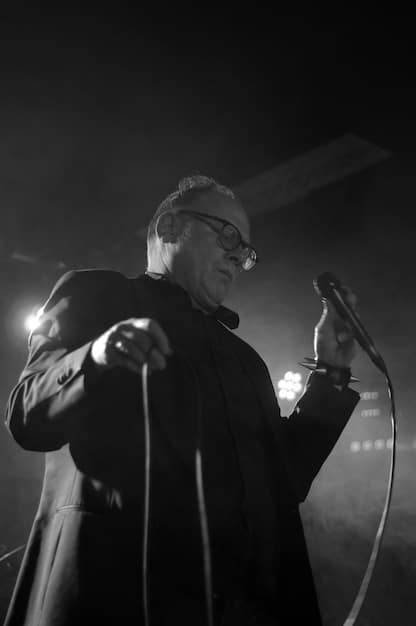
A Master of Melancholy
Morricone’s scores are often characterized by their melancholic beauty. He has a gift for creating melodies that are both haunting and memorable, evoking a sense of longing and nostalgia.
His use of unusual instruments, such as the ocarina and Jew’s harp, adds a unique flavor to his music, setting it apart from traditional orchestral scores.
- Blending orchestral arrangements with electronic elements.
- Incorporating sound effects and found sounds into the music.
- Using vocal performances to add an emotional layer to the scores.
Morricone’s unique approach to film scoring has made him a true innovator and a major influence on cult cinema.
To summarize, Morricone’s legacy is a testament to the power of innovation and experimentation in film music.
Beyond the Mainstream: Other Notable Composers
While Carpenter and Morricone are well-known names, many other talented composers have contributed to the sound of cult cinema, often working in obscurity and without widespread recognition. These unsung heroes deserve to be celebrated for their contributions.
Their scores often reflect the quirky and unconventional nature of the films they accompany, pushing the boundaries of musical expression.
Spotlighting the Underrated
Several names warrant recognition for their remarkable work in crafting iconic cult film soundscapes.
- Goblin: Known for their distinctive progressive rock scores for Dario Argento’s horror films, such as *Suspiria*.
- Riz Ortolani: An Italian composer who created the haunting score for *Cannibal Holocaust*.
- Fred Myrow and Malcolm Seagrave: Their work on *Phantasm* created one of the most chilling horror themes of all time.
Discovering these composers and their works can open up an entire new world, enriching one´s appreciation of cinema.
In conclusion, this array of composers offers a wealth of sonic treasures waiting to be unearthed.
The Enduring Legacy of Cult Film Soundtracks
The soundtracks of cult films have had a lasting impact on popular culture, influencing music, fashion, and art. Many of these scores have been rediscovered and re-evaluated in recent years, gaining a new audience and cementing their place in film history.
The composers behind these soundtracks may not always be household names, but their music continues to resonate with audiences and inspire new generations of artists.
A Resurgence in Popularity
The rediscovery of cult film soundtracks is a testament to the enduring power of music. As audiences seek out unique and authentic experiences, these scores offer a welcome alternative to mainstream Hollywood soundtracks.
Many of these soundtracks have been re-released on vinyl and digital platforms, allowing new generations to discover their sonic treasures.
- Film festivals and screenings dedicated to cult cinema.
- Documentaries and books exploring the history of cult film soundtracks.
- Online communities and forums celebrating these often-overlooked works.
This increased awareness has brought renewed attention to the composers behind these scores, giving them the recognition they deserve.
The legacy of these innovative soundtracks will continue to inspire for years to come.
| Key Point | Brief Description |
|---|---|
| 🎶 Unsung Composers | Highlighting the overlooked musicians behind cult film soundtracks. |
| 🎹 Synthesizers Rise | The impact of synthesizers on creating affordable and innovative scores. |
| 🎵 John Carpenter’s Sound | Exploring the minimalist and suspenseful scores of John Carpenter. |
| 🎬 Morricone’s Influence | Ennio Morricone’s significant impact on cult cinema soundscapes. |
FAQ
▼
Cult film composers frequently operate outside the mainstream, with smaller budgets and less promotional support compared to Hollywood composers. This limits their visibility and recognition.
▼
Synthesizers provided an affordable way to create complex and experimental scores. Their versatility enabled composers to produce entire soundtracks independently, fostering innovation in low-budget films.
▼
Carpenter’s scores are minimalist, synthesizer-driven, and highly effective at creating suspense. His simple melodies and repetitive motifs add to the eerie atmosphere of his films.
▼
Morricone’s experimental approach and incorporation of unconventional instruments greatly influenced cult cinema. His haunting melodies brought a unique emotional depth to many films.
▼
Cult film soundtracks can be discovered through online platforms, vinyl re-releases, film festivals, and documentaries. These resources provide accessibility and insight into their historical and cultural significance.
Conclusion
In conclusion, the realm of cult cinema owes a great debt to its unsung composers, whose innovative and evocative soundtracks have played a crucial role in defining the unique character and enduring appeal of ‘Forgotten Classics’. From the synthesizer-driven scores of John Carpenter to the melancholic beauty of Ennio Morricone, these musical visionaries deserve to be celebrated for their contributions to the art of filmmaking. Their work has not only shaped the sound of cult cinema, but also left an indelible mark on popular culture, inspiring new generations of artists and audiences alike.




